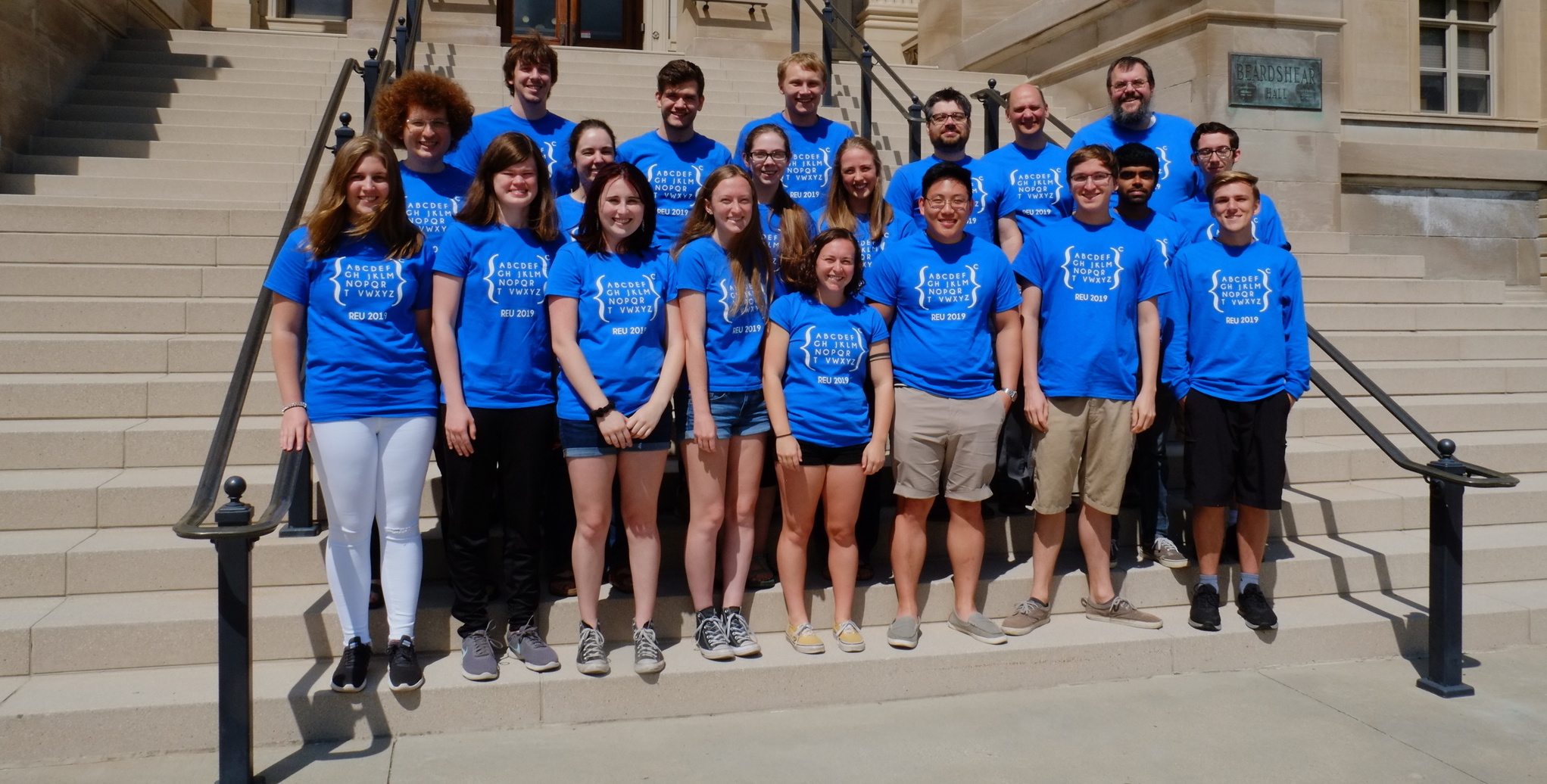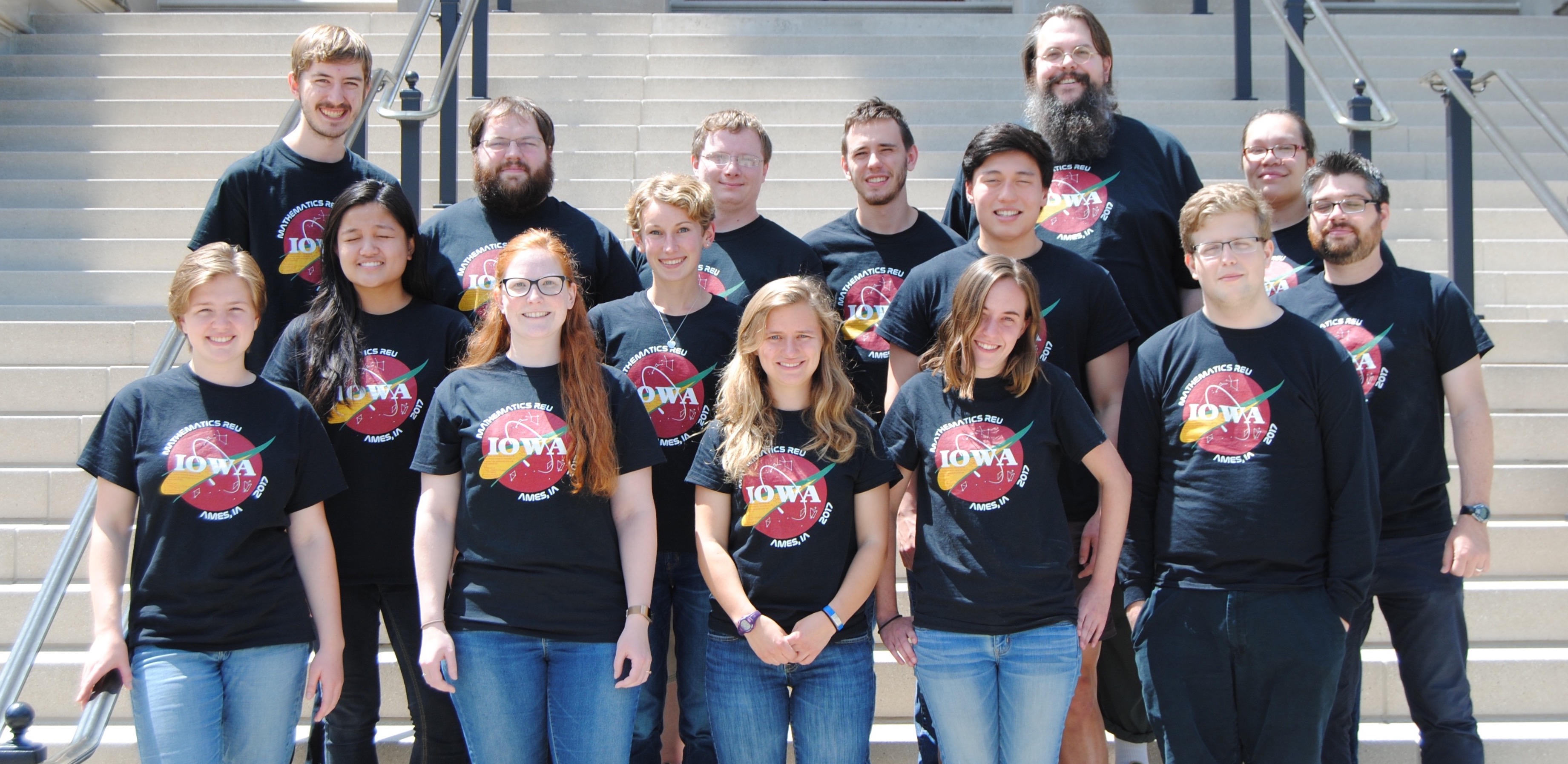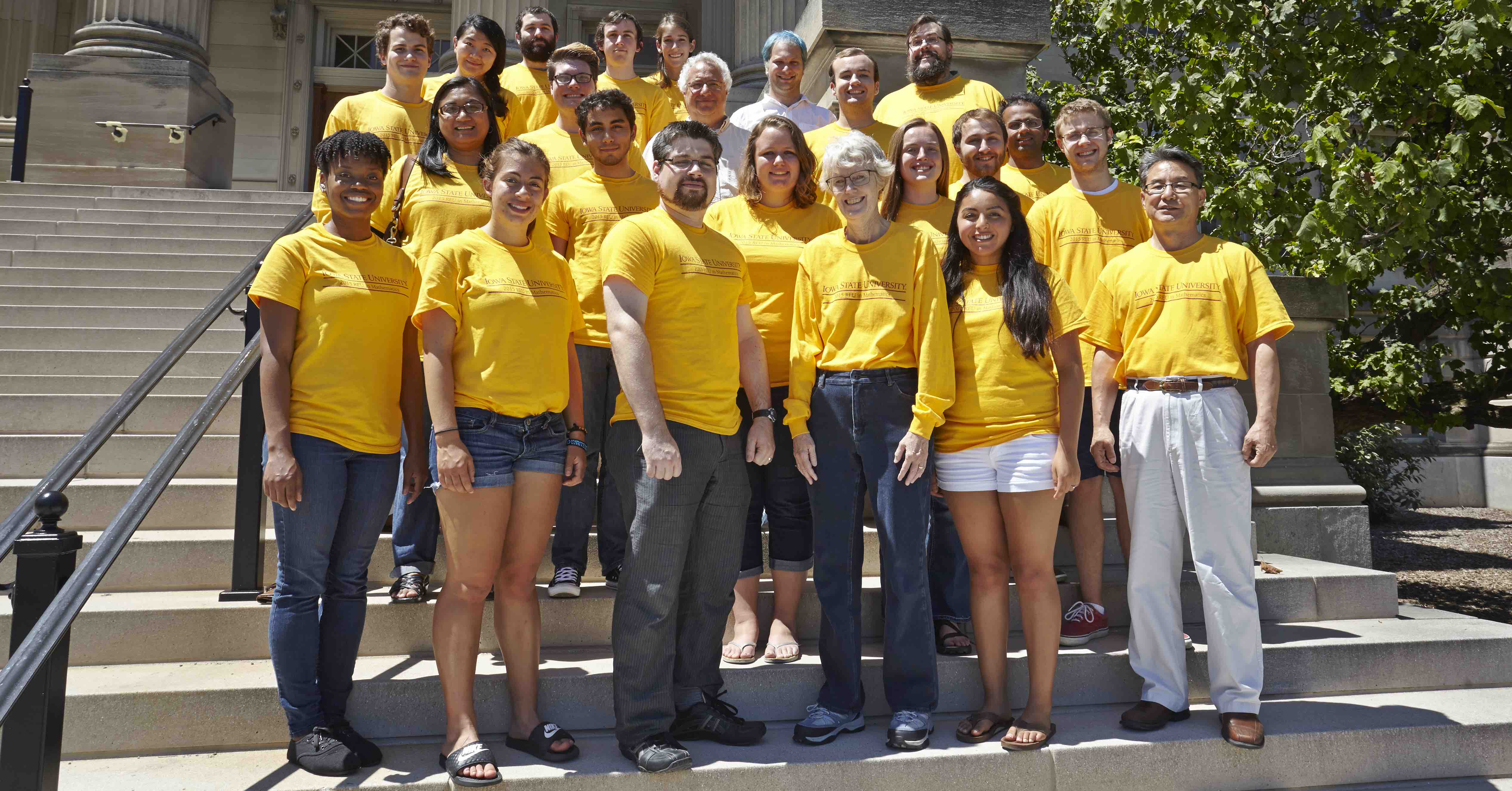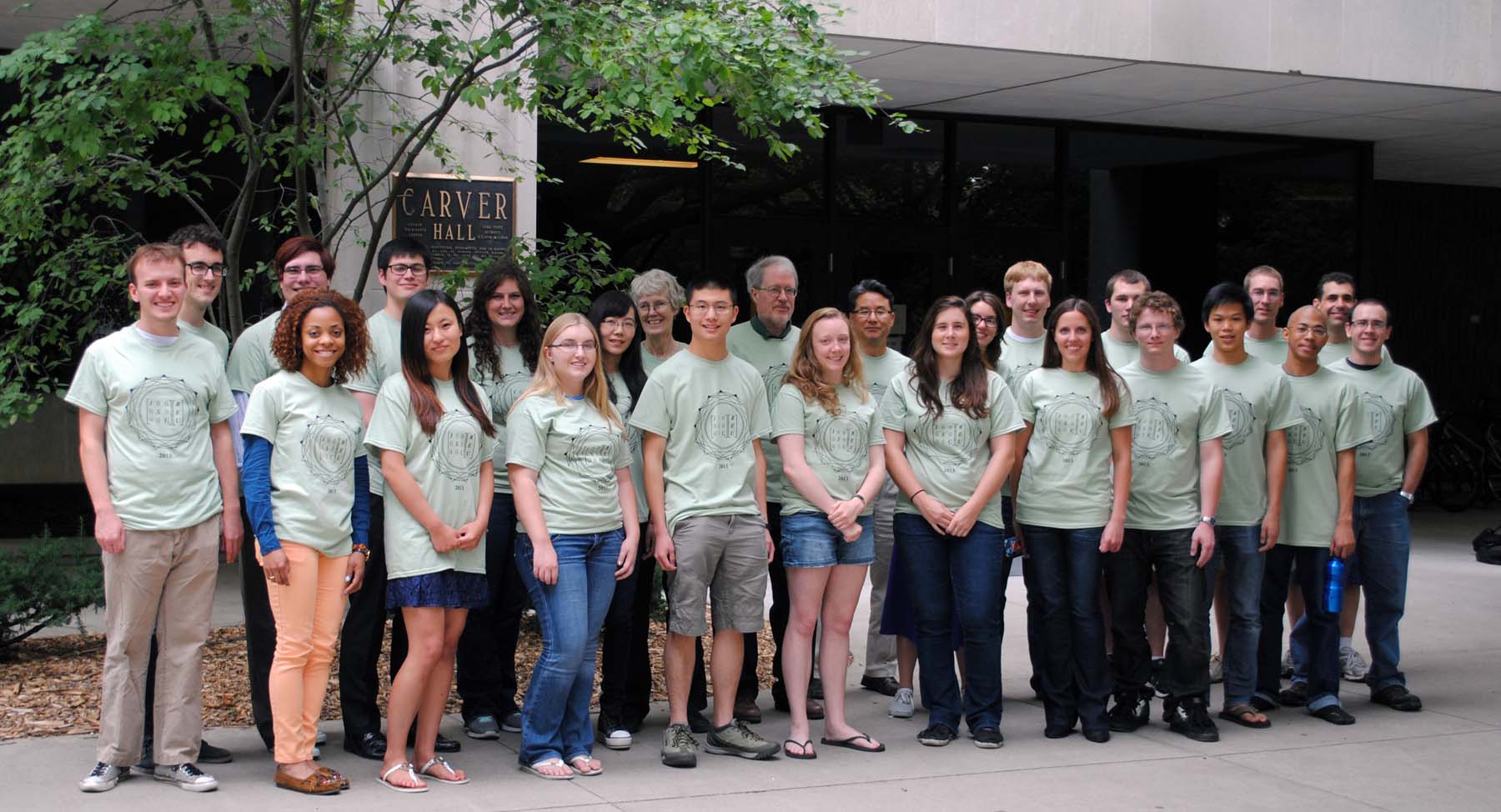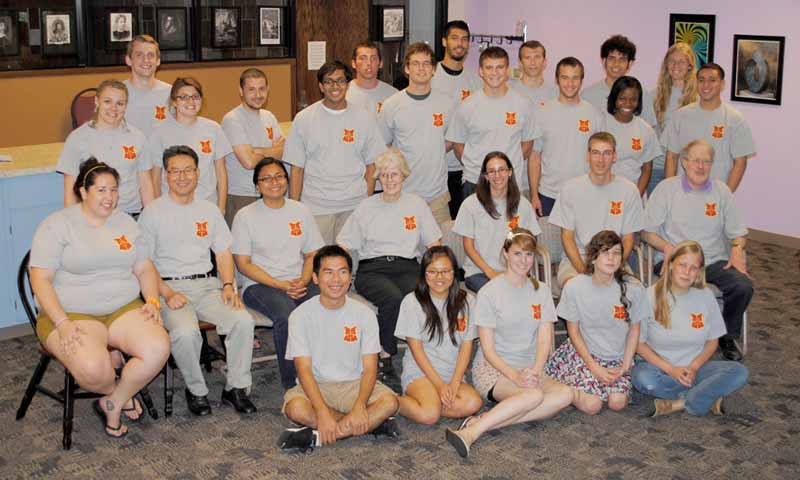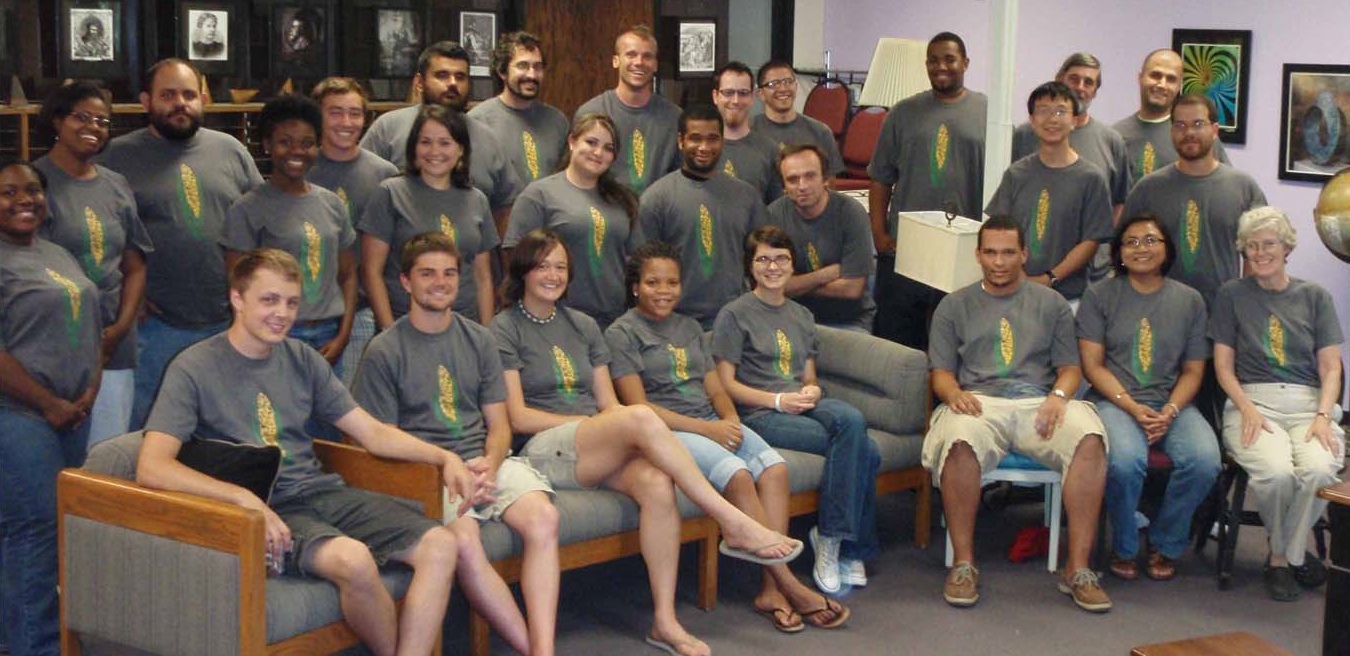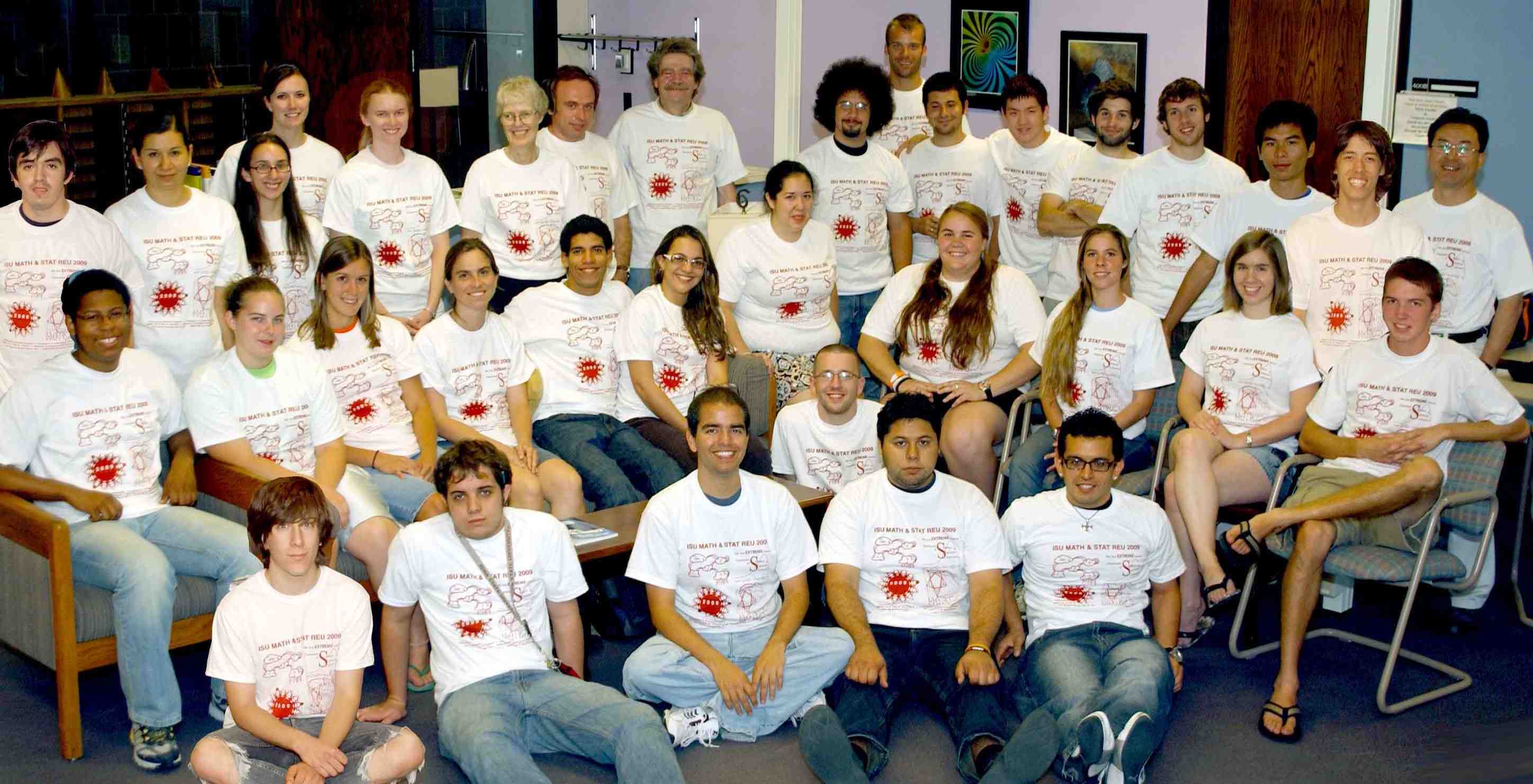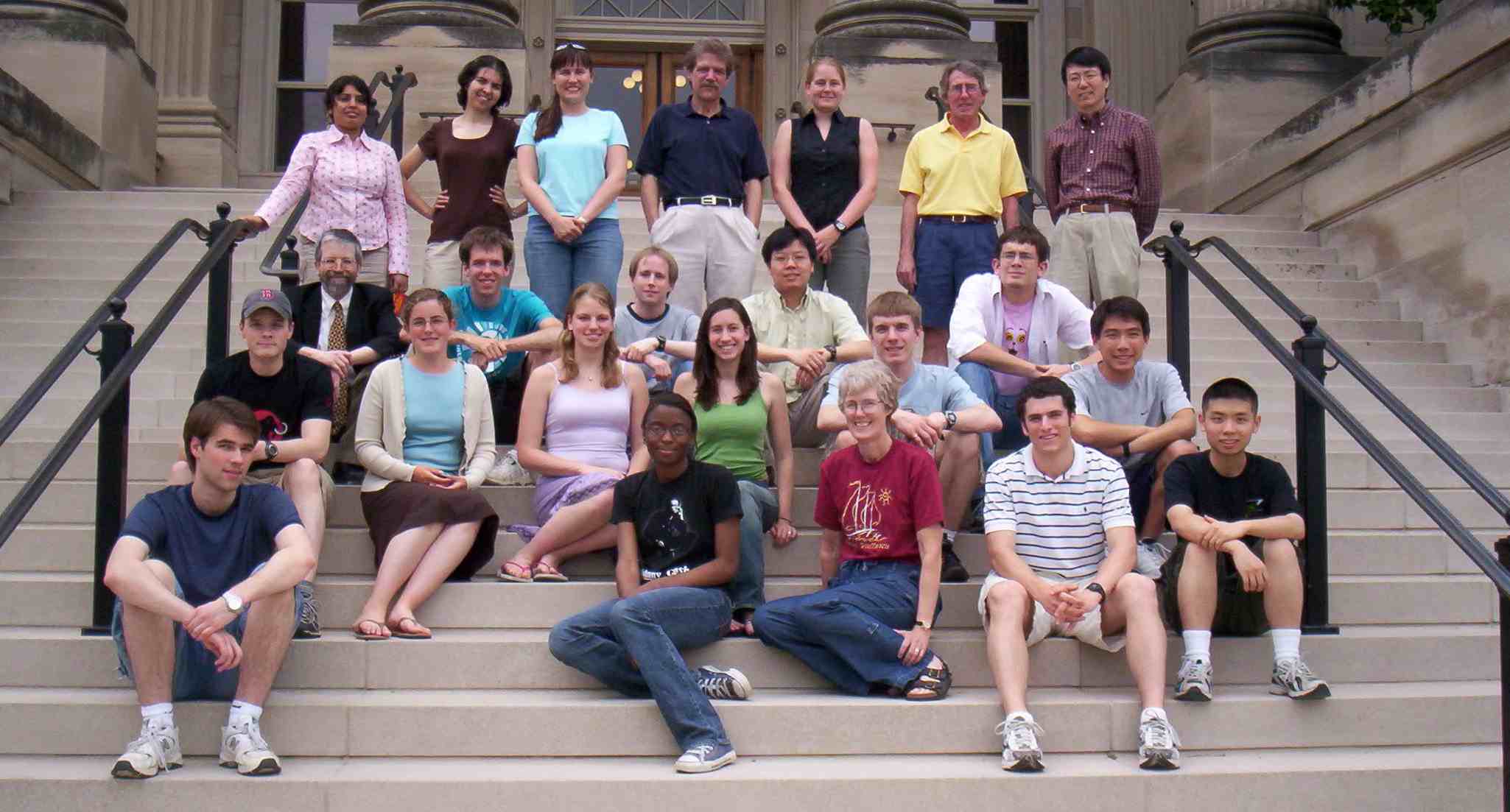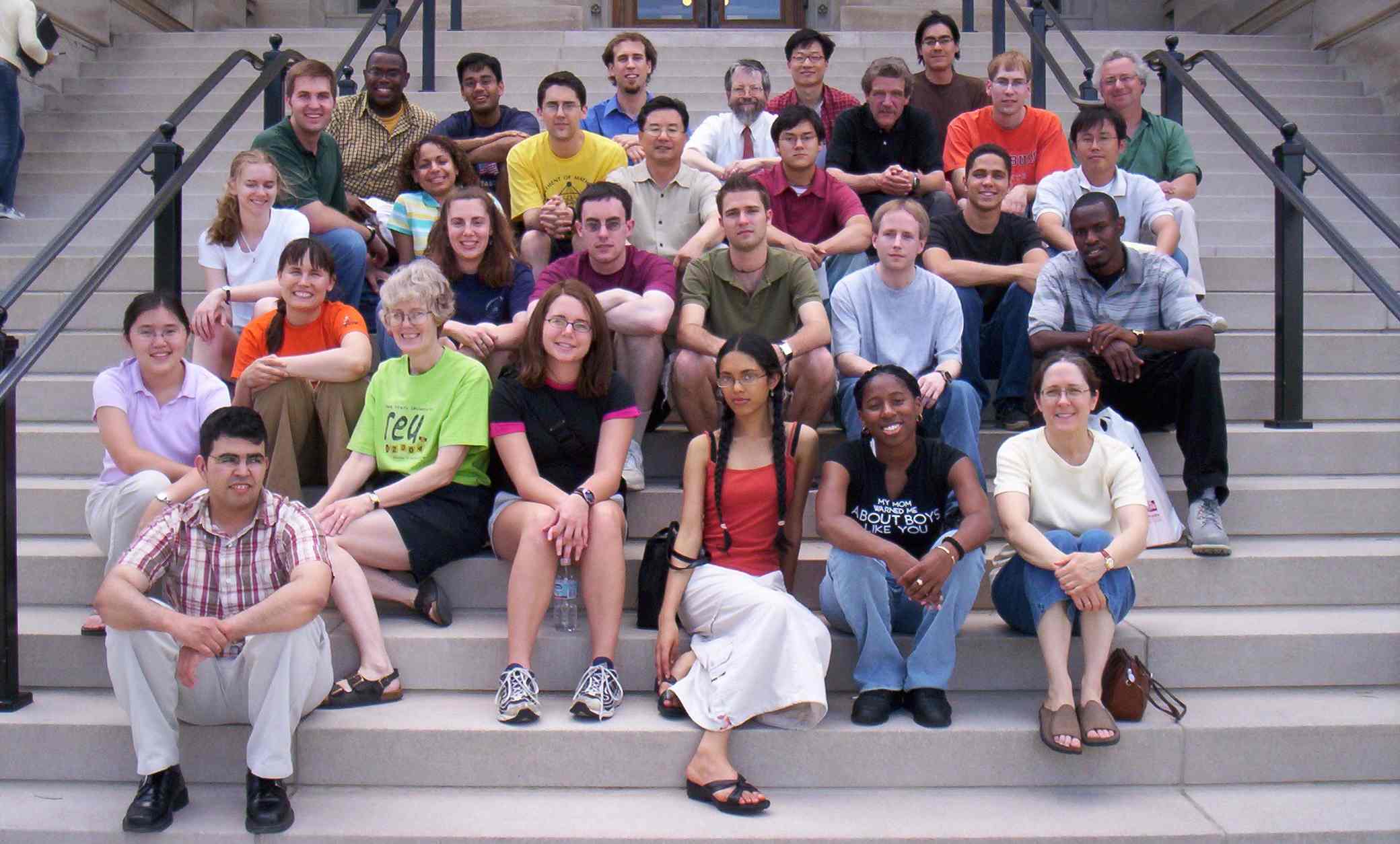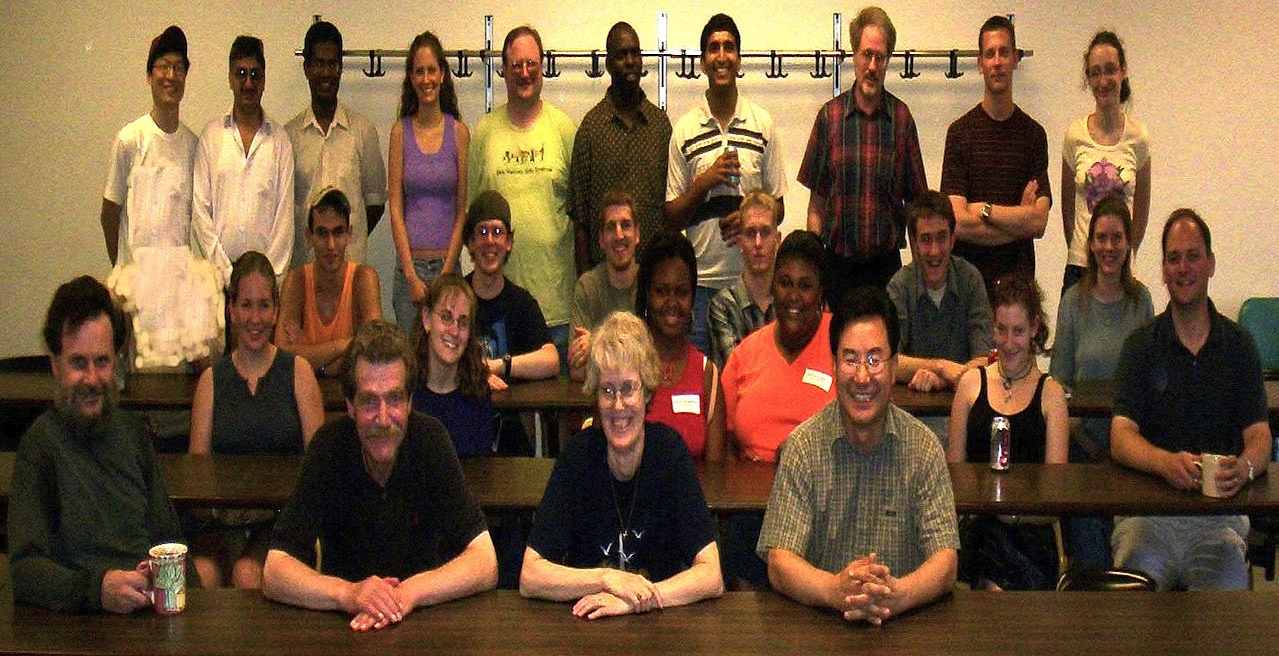2017 Projects
Combinatorial Matrix Theory (CombMat) Group:
Project Title: Inverse eigenvalue problem for small graphs
Group Leaders: Steve Butler (ISU)
 and
Leslie Hogben (ISU)
and
Leslie Hogben (ISU)

Project Description:
Given a graph we can associate it with a matrix in many different ways, e.g., adjacency matrix, distance matrix, Laplacian matrix, etc.... For a fixed matrix we can then look at the eigenvalues of that matrix associated with the graph and deduce some (limited) information about the graph, this leads to the field of spectral graph theory. But can we go in the other direction?
Namely, given a graph and some specified real numbers is there some symmetric matrix whose nonzero entries off the diagonal correspond to the edges of the graph and whose eigenvalues are the specified real numbers? This is known as the inverse eigenvalue problem. This turns out to be challenging, even for small graphs, and only in the last year has this problem been solved for graphs on five vertices. In this project we will continue exploring small graphs with a goal of working through all six vertex graphs for the inverse eigenvalue problem, and a larger goal of trying to establish general results and methods for working on the inverse eigenvalue problem.
Participants in this group will also attend and present at the International Linear Algebra Society meeting held in the last week of the REU at Iowa State University.
Prerequisites:
Linear algebra and some experience with discrete mathematics, particularly graph theory, are prerequisites of this project. Strong mathematical curiosity is expected of the participants, as well as an ability to learn and use new tools. The group will make use of the software SAGE for exploration, knowledge of this software prior to the REU will be helpful but can also be picked up during the REU.
(Back to top)Modeling and Computation (ModComp) Group:
Project Title: Adjoint-based adaptive numerical methods for hyperbolic conservation laws
Group Leader: James Rossmanith (ISU)

Project Description:
Conservation laws comprise a particular class of partial differential equations of the form \[ \frac{\partial}{\partial t} q + \frac{\partial}{\partial x} f(q) = 0, \] where \(q(t,x)\) is the conserved variable (i.e., mass, momentum, energy) and \(f(q)\) is the flux function. Hyperbolic conservation laws are equations of the above form with the additional property that information in the system propagates at a finite speed. Mathematically, this means that the flux Jacobian matrix, \( \partial f/\partial q \), has only real eigenvalues and a complete set of eigenvectors.
Hyperbolic conservation laws are ubiquitous in many areas of science; they natural arise when a wave-like phenomenon is modeled (e.g., sound, electromagnetic, gravity, and elastic waves).
In this project we will explore a class of numerical methods for solving hyperbolic conservation laws known as discontinuous Galerkin schemes. One of the key aspects of this project will be to endow these numerical methods with sensitivity indicators that can be used to efficiently allocate computational effort based on a predefined quantitiy of interest. In particular, we will make use of the so-called adjoint equation in order to estimate these sensitivities. The resulting approach will be implemented in Python and applied to several hyperbolic wave propagation problems.
Prerequisites:
Prerequisites for this project include basic programming skills (any programming language is fine), some background in numerical analysis (introductory undergraduate level), and some familiarity with partial differential equations (introductory undergraduate level). Strong mathematical curiosity is expected of the participants. The group will make use of the Python programming language (NumPy, SciPy, Matplotlib), although no prior knowledge is assumed.
(Back to top)